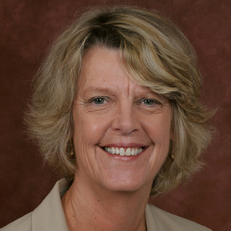
Three Florida State University researchers will examine the media and public policy connections that resulted from the Trayvon Martin case as part of a state-based research partnership that will be part of the international Comparative Agendas Project.
The Comparative Agendas Project is a collection of international researchers analyzing several different countries and regions. Research projects exist for 16 different nations, the European Union, the state of Pennsylvania and now, Florida.
The Florida Policy Agendas project will officially launch June 12 at an annual conference for the Comparative Agendas Project in Konstanz, Germany.
The project, directed by Carol Weissert, LeRoy Collins Eminent Scholar and Professor of Political Science, with the help of Assistant Professors Patrick Merle from the School of Communication and Amanda Driscoll from Political Science, is only the second state-based project to be developed in the United States. Temple University has been coordinating a similar effort in Pennsylvania.
“Florida is understudied in comparative state politics, and I think that having good data that is comparable across subnational units in other counties is a great opportunity for scholars and especially graduate students interested in communication and political science,” said Weissert, who is also the director of the LeRoy Collins Institute, a nonpartisan center at Florida State that studies state policy.
The first major issue the trio will analyze is the Martin case, which yielded international media coverage and a slew of legislative proposals related to the so-called “stand your ground” law. Martin, a South Florida teen, was killed in a 2012 fight with neighborhood watch volunteer George Zimmerman, who was later acquitted of criminal charges.
“The idea is to collect information both on the legislative side and the media side to understand how agendas are constructed and how issues evolve,” Merle said.
Initiated through discussions between Political Science Professor Cherie Maestas and Merle during the Fall 2013 semester, the Florida Policy Agendas project represents an interdisciplinary research approach in the area of political communication and agenda-setting research that will allow researchers and students at Florida State to collaborate with researchers from around the world.
Driscoll, Merle and Weissert are still developing some of the parameters for the center and a project management system. Right now, they are focusing on the bills sponsored in the Florida Legislature and print news articles, but they are also looking for ways to evaluate new media as well.
“Though the Florida Policy Agendas project is at a nascent stage, one of the most promising features is its possible future applications and extensions,” Driscoll said. “We have already discussed the possibility of using part of our coding interface to collect blogs and social media, to evaluate issue evolution across different media platforms.”
For more information on the Florida Policy Agendas project, follow them on Twitter @FL_CAP




